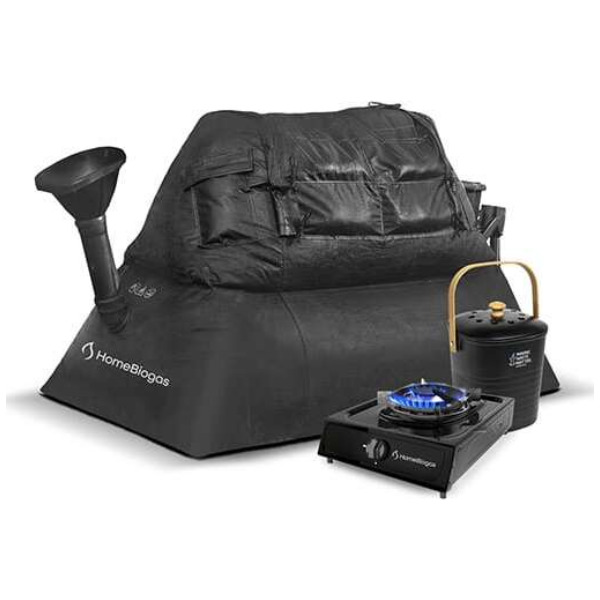Farmers have been composting waste materials for centuries to turn them back into nutrients for their crops. Still, new technologies like biodigesters are helping everyday homeowners take the concept even further. Tampa residents can apply for one at no charge, thanks to a grant from the U.S. Department of Agriculture (USDA).
Along with 80-gallon composting barrels, a limited number of HomeBiogas biodigesters are available for residents who create about a gallon of food waste daily. “About 22% of household waste is food waste,” said Shelby Lewis, the city’s recycling coordinator. “Much of the waste that goes into a biodigester isn’t compostable, like meat scraps, bread or fats, and we’re always looking for ways to divert waste.”
The HomeBiogas digester creates a liquid fertilizer – up to two gallons per day — as well as biogas that can be captured and used for outdoor cooking with a stovetop burner that comes as part of the package. It can also be used for biosolids with a separate attachment, not included in the city’s package, that functions as a toilet for up to four people.
“The biodigester is a form of composting. I like to compare it to the science of baking,” Lewis said. “If you’re baking cookies and not bread, you’re going to have different ingredients cooked at different temperatures. The biodigester can use all kinds of food scraps, but it doesn’t take yard waste or fiber like paper products. On the other hand, you can put yard waste and fiber in a regular composter but not waste like dairy, bones, or fat.”
And while most waste in the city is burned in a waste-to-energy plant on McKay Bay, the goal is to minimize carbon emissions created when trash is trucked to the facility, she said.
Being able to offer the biodigesters is a serendipitous opportunity for the city, Lewis adds. “We had won a USDA grant that was set to be a little different than this, but we couldn’t make it happen the way we had planned. The USDA said not to give up, to go back to the drawing board, and come up with something that was related to food waste. We put our thinking caps on, talked to different people and came up with this plan. So this was born out of a failed attempt at another program.”
The grant will allow the city to purchase about 100 of the biodigesters and they’re proving to be very popular with more than 200 applications. Learn more at https://www.tampa.gov/solid-waste/backyarddigester or check out the city’s ongoing backyard composting initiative at https://www.tampa.gov/solid-waste/backyard-composting-program
